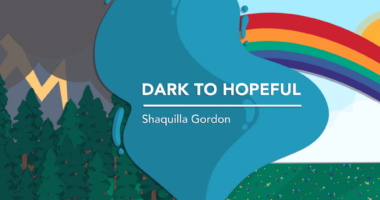3 pointers to keep in mind when web browsing for PNH information
Online advice and tales of patient experiences may not apply to everyone

I recently posted about paroxysmal nocturnal hemoglobinuria (PNH) on a social media page, hoping to make connections with other patients. Users commented on the post and discussed it with one another, which was exciting! But I didn’t agree with some of their advice and decided to intervene.
They were talking about PNH patients who get a port to allow easy access to veins for medication infusions. One person noted how much it had helped her husband, adding that it was necessary for all patients to get one. But my doctor is adamant that he doesn’t want me to get a port due to the risk of a blood clot or infection.
Doctors may have different approaches to things, so their advice about getting a port isn’t set in stone for all patients. The topic might be controversial, which is something I want to avoid on my social media accounts.
Yet it was difficult to point this out without sounding rude, as text can be read in different tones. But I wanted to correct the inaccurate advice. So I responded with the following bullet points of advice:
1. Patients should always discuss their options with a PNH doctor
My healthcare provider is open to discussing any questions I bring to him. I’ve asked him about over-the-counter supplements and vitamins, tattoos, and even alcohol consumption — all topics that might seem irrelevant to my care. But I wondered if it was safe to do these activities, given my disease, and I wouldn’t have known unless I’d asked.
I’ve also discussed information from other patients’ social media posts, asking my doctor if their words might apply to me. In this particular case, I asked about getting a port. We went over my options, and my doctor said he would feel most comfortable if I didn’t get one.
Thus, part of my response to the commenter stressed that patients need to talk to their own doctors at length about the risks and rewards of undergoing the procedure. After they have all the information, I suggested, they should work with their doctor on a mutual decision.
2. Research the topic as much as you can
Although there’s not a large amount of research available for PNH (because it’s rare), I’ve looked into many topics and questions as they’ve arisen in my life, including air travel with medication and security issues at airports. I’ve also researched pregnancy in PNH and what to expect. I continue to browse PNH News, Facebook patient support groups, and other online resources.
I’ve found that for a lot of my questions, the advice is often not the same across different websites. The topic of a port is a perfect example. Thus, in the second part of my response to the commenter, I urged patients to look at multiple sources while searching for answers and to take the information at face value — not assuming that the first thing they see is the solution.
3. Remember that everyone’s situation is different
I’m lucky to have connected with many PNH patients over the past five years, but I’ve found that our views and experiences are often different. We have a lot of similarities, including our symptoms, but things like which symptoms are most bothersome or how our diagnosis played out may differ.
Our demographics — ages, genders, locations, and ethnicities — also vary. We may have the same blood disorder, but that doesn’t mean our journeys or treatment regimens will be the same. With that in mind, my response to the commenter also stressed how something that’s been successful for one patient on the internet doesn’t mean it’ll be successful for others.
After I posted my reply, I received positive feedback. I ended up feeling happy that the controversy arose in the first place because it gave me an opportunity to put this information out there for users to keep in mind while connecting with one another. My hope is for patients to use my experiences to better their own.
Note: PNH News is strictly a news and information website about the disease. It does not provide medical advice, diagnosis, or treatment. This content is not intended to be a substitute for professional medical advice, diagnosis, or treatment. Always seek the advice of your physician or other qualified health provider with any questions you may have regarding a medical condition. Never disregard professional medical advice or delay in seeking it because of something you have read on this website. The opinions expressed in this column are not those of PNH News or its parent company, Bionews, and are intended to spark discussion about issues pertaining to paroxysmal nocturnal hemoglobinuria.









Leave a comment
Fill in the required fields to post. Your email address will not be published.